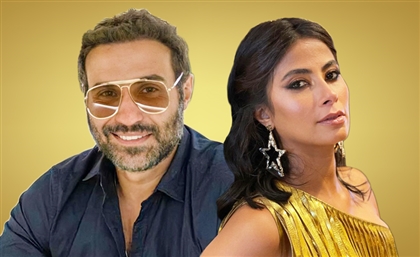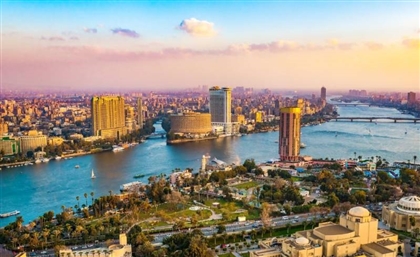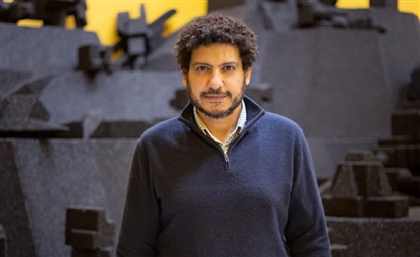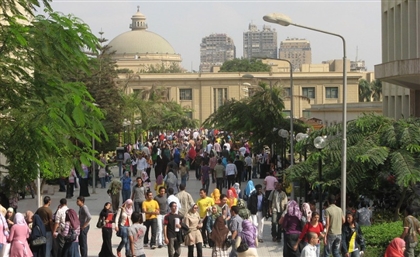Then and Now: Is Egypt's Tattoo Subculture Going Anywhere?
Tattooing has been an art in Egypt since the days of the Pharaohs, yet still remains a subculture within Egyptian society today.
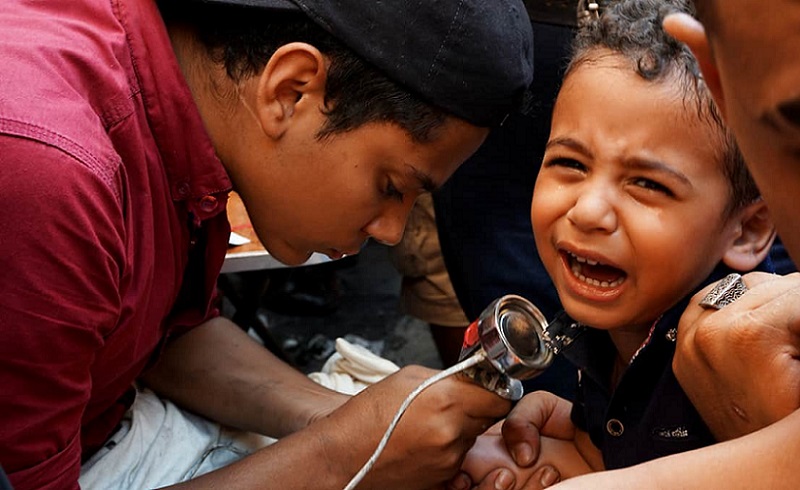
It’s difficult to get started in an industry with a niche market, one that you can’t casually take courses for because of the questionable connotations tied to the practice.
The tattooing industry has existed in the corners of streets and small alleyways, or villages on the borderline of the great capital for thousands of years in Egypt. The Nubians in Upper Egypt are famous for their facial tattoos, used for tribal identity or as a beauty enhancer; the Coptic community also continues to apply the practice of getting a symbolic cross on the wrist.
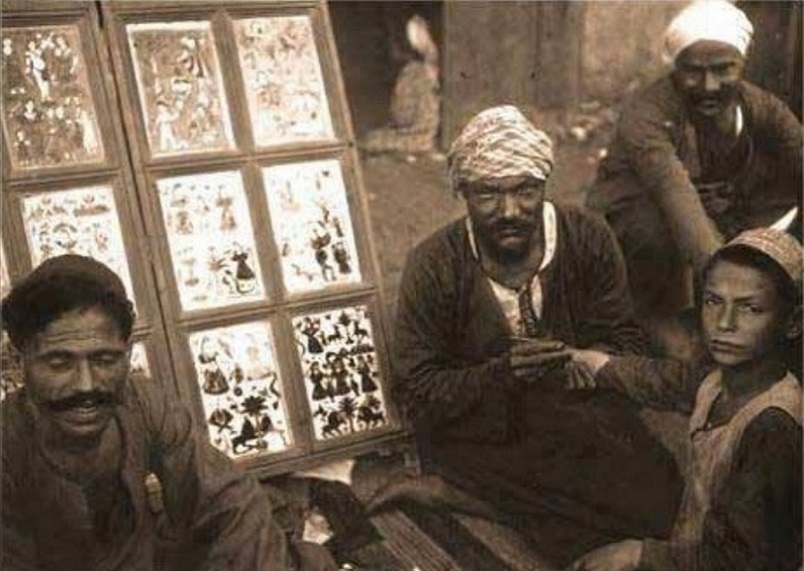
Image from Rawi Magazine
However, people only began to pay medical attention to tattoos recently, despite the hazardous dangers that could come with a tattoo gone wrong. There comes the risk of Hepatitis C due to unsterilised equipment, or the lack of enough practice and skill to qualify as a professional tattoo artist. In 2014, there was a reported number of 122 HCV cases resulting from unsanitary tattoos in Egypt, according to a report on Iran J Public Health.
In 2014, there were a reported number of 122 HCV cases resulting from unsanitary tattoos.
However, the tattoos we now see in Egypt are different than the standard and traditional ones that we used to see before – and that still exist in abundance. But is it sanitary?
21st Century Tattoos in Cairo
We talked to Omar, founder and solo tattoo artist of Project Murphy Inks. He started recently in a studio, where he’s cleared out the entire area to dedicate to his line of work.
“The career of being a tattoo artist here in Egypt starts at home for many,” Omar said, gesturing at the room around him. “Because there aren’t really hubs where people can venture and practice tattooing, it's difficult to delve knee-deep into the industry.”
A decade ago in Egypt, it was rare to find a tattoo studio or a reliable tattoo artist. There were only a few people in upper-class neighbourhoods the likes of Maadi or Zamalek, and only a few tattooist names that were recognisable, such as Timur Reda, or Orne Gil, founder of Nowhereland Tattoo Studio - the first tattoo studio in Egypt.
“There are several steps that go into learning tattooing,” Gehad El-Shaikh, the face behind Gee Inks told us. A tattoo artist who attended Body, Art and Soul - a tattoo school in New York. El-Shaikh described the process in which a tattoo studio would usually hire an apprentice. “You first have to learn about the safety procedures, and then the cleaning and the sanitising, and then we get weeks of training on these thick skin-like pads, and then we can finally begin working on inking people.”
There is a growing tattoo subculture in a country where, for some, this form of body art is seen as a taboo.
In similar retrospect, Mahmoud Abdel-Sattar, professionally known as Star Inks, also studied tattooing overseas in Russia, and returned to Egypt to apply his learning within the niche market in Egypt.
“There is a growing tattoo subculture in a country where, for some, this form of body art is seen as a taboo,” Omar said. “It’s different to henna, which is not permanent. and gradually fades away into your skin.”
Out with the Old, in with the New
Many people receiving tattoos in Egypt are still concerned about the permanent aspect of getting a tattoo. It’s not so much about the fact that they’re worried of its loss in value or personal symbolic meaning, as much as it is about their fear of religion or their parents.
But doors are widening, and young Egyptians are now even convincing their parents to get matching tattoos with them, or winning their parents’ acceptance by getting a familial emblem or tattoo etched on their skin.
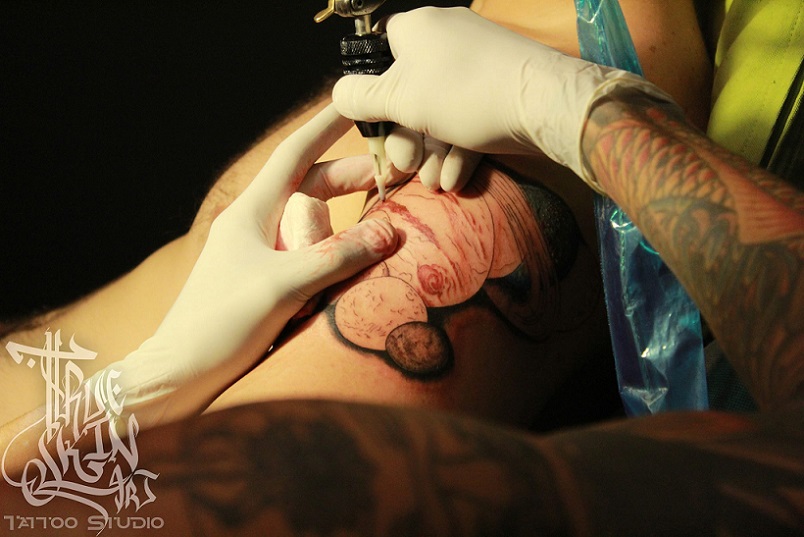
“There are several Egyptian celebrities now who shamelessly boast their tattoos, like Amr Diab with his Stamina tattoo written in large, bold letters on his chest. This is something you would’ve never seen in Egypt ten years ago,” Omar said.
And it’s true. The tattoos we saw ten years ago were more modest or hidden, obscured, or traditional.
I sat through a four-hour session with Omar inking a friend of his. Omar sits down with his customers and goes through the design together, perfecting any details that the customer has in mind. He then guides them on the do’s and don’ts, before proceeding with the process.
The convention brought together tattoo artists from all around Cairo.
“I had to learn the process from a friend in Egypt who’s been in the tattoo industry for several years,” Omar said. “Much of the credit also goes to YouTube."
In 2014, Cairo saw its first Tattoo Convention, a convention that was kick-started by Nowhereland Tattoo. The convention brought together tattoo artists from all around Cairo, and people could attend these conventions to either give tattoos or receive tattoos. “We’re trying to build a community of people who are passionate about tattoos, whether they’re artists or customers,” Tattoo Artist Timur Reda said in a 2015 documentary. “We’re still a small community, and I’m really happy that we’re starting to support each other instead of, you know, competing; we’re collaborating and supporting each other, sharing ideas, and making people happy.”
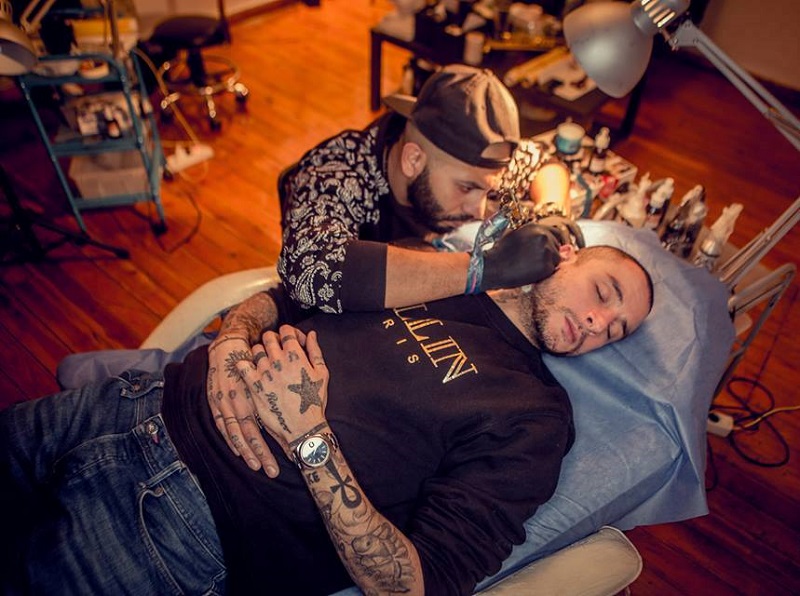
Ahmed El-Fishawy getting tattooed by Star Inks
However, the conventions were short-lived, and died down two years after their first launch due to the social stigma associated with the practice. Despite the fact that younger generations are more rebellious and less traditional than the older generations (of our parents and such), there lies a sort of resistance or a lack of motivation for the tattoo industry to become fully-fledged within Egyptian society, like a sort of social barricade.
We’re still a small community, and I’m really happy that we’re starting to support each other.
A fatwa was made in 2017 now permitting women to get tattoos, but still many parents look to the form of body art in disgust, dubbing it as a social disgrace. Traditionally, permanent tattoos were seen to be blasphemous, since the act of piercing the skin inflicts pain upon a person, and also mutilates the body - according to Islamic belief.
The Future of the Tattoo Industry in Egypt
“My dad asked me to [consider] removing my tattoos, despite telling him a hundred times over that I won’t,” Hana Mashhour said about her arm-sleeves. “It’s not about religion anymore, but about reputation, especially in a culture like ours where a woman should look and act a certain way.”
Mashhour, also known as J!n, believes that Egypt still has a long way before beginning to normalise tattoos. There will certainly be parents who accept tattoos on their children, and some parents who are even forced into accepting and loving the tattoos for the sake of their children. However, many parents still choose to stick to their old ideologies and beliefs, refusing to conform to new lifestyles and principles. “My parents hate the tattoos, but they don’t hate me. They just live by a certain cultural stipulation that doesn’t abide by my own,” Mashhour added.
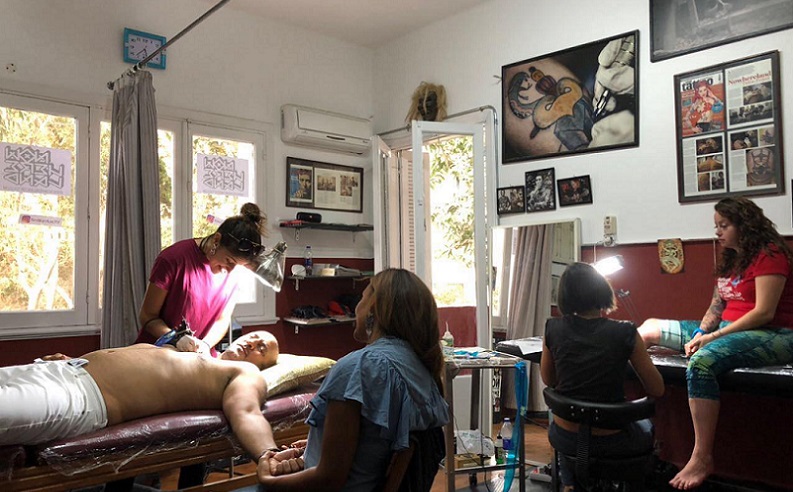
Image from Nowhereland Tattoo Studio
Abdel-Sattar admitted that he never got a tattoo, despite tattooing tens of dozens of customers, including internationally-known people, due to the fear of losing his father's acceptance and respect.
The growing tattoo culture is in a way forcing people to step out of their comfort zone when it comes to culture and tradition. New trends and lifestyles are being introduced to the country, which was so fixated on being confined within past traditions, feeling like that was the only way of life. With globalisation at full swing, we’re starting to see newer ideologies seeping into the country.
Old thoughts are being washed away with the new generations, due to the wider exposure to the outside world. That, coupled with the fact that tattoos were ratified as no longer blasphemous by Al-Azhar, has created a more easygoing generation that doesn't carry disdain towards tattoos as much as our parents did.
Main image from Mei Mei Chu.
- Previous Article La Liga Academy Has Opened Its Doors in Egypt
- Next Article This Egyptian Brand's New Mini Bags Will Make You Ditch Your Oversized Purse





